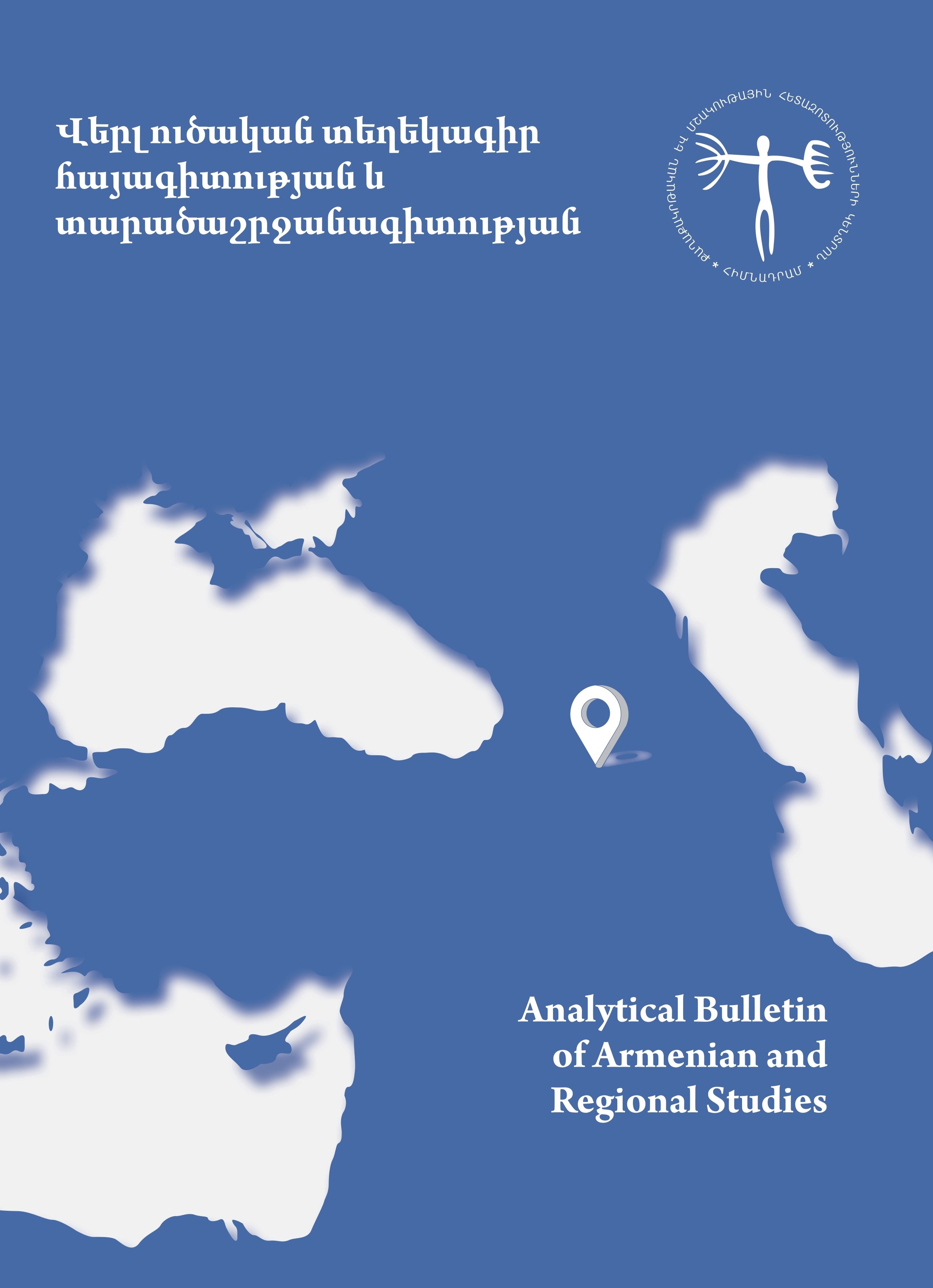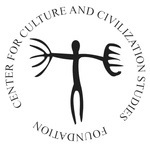Armenian Տունը որտե՞ղ է․ Շվեդիայում սփյուռքահայերի ինքնության ձեվավորման վերաբերյալ ազգագրական դաշտային համառոտ ուսումնասիրություն
##semicolon##
https://doi.org/10.56673/18294502-sse2024.19.2##semicolon##
Diaspora, identity, Sweden, Armenians, belonging##article.abstract##
Այս հետազոտության նպատակն է ուսումնասիրել, թե ինչպես են միգրանտների ինքնությունը, և պատկանելության զգացումը ձևավորվում և կերպափոխվում տարբեր մշակույթների և Շվեդիայի տեղական սփյուռքի հետ փոխազդեցությունների ընթացքում: Մասնավորապես, այս աշխատանքը ուսումնասիրում է, թե ինչպես են Մերձավոր Արևելքից Շվեդիա տեղափոխված հայ միգրանտների կամ միգրանտների զավակների ինքնությունները, մշտապես ձևավորվում և վերափոխվում տարբեր մշակույթների հետ փոխազդեցությունների արդյունքում: Աշխատանքի նպատակն է նաև հետազոտել, թե ինչպես են ինքնության փոխակերպումները ազդում միգրանտների տեղի ու պատկանելության ընկալման վրա։ Մասնակիցների անձնական պատմությունների և փորձառությունների միջոցով ուսումնասիրությունը նպատակ ունի վերաքննել ինքնությունների և պատկանելության զգացումի անփոփոխ լինելու վերաբերյալ պրիմորդիալ ենթադրությունները և մասնակիցների տեսանկյունից սփյուռքում ինքնությունների ձևավորման ընթացքը վերլուծել։
##submission.citations##
Adam. Interview, 2021.
• Anna. Interview, 2021.
• Arthur. Interview, 2021.
• Arthur, Ella, Andy. Focus Group 2, Interview, 2021.
• Blommaert, Jan, and Jie Dong. Ethnographic Fieldwork: A Beginner’s Guide. Bristol ; Buffalo: Multilingual Matters, 2010.
• Boccagni, Paolo. “From the Multi-Sited to the in-between: Ethnography as a Way of Delving into Migrants’ Transnational Relationships.” International Journal of Social Research Methodology 19, no. 1 (2016): 1–16.
• Brubaker, Rogers. “The ‘diaspora’ Diaspora.” Ethnic and Racial Studies 28, no. 1 (2005): 1–19.
• Calhoun, Craig. “Nationalism and Ethnicity.” Annual Review of Sociology 19, no. 1 (1993): 211–39.
• Campbell, Lisa, M., Noella, J., Gray, Zoe, A., Meletis, James, G., Abbott, and Jennifer, J. Silver. “Gatekeepers and Keymasters: Dynamic Relationships of Access in Geographical Fieldwork.” Geographical Review 96, no. 1 (2006): 97–121.
• Crewe, Ben. “Not Looking Hard Enough: Masculinity, Emotion, and Prison Research.” Qualitative Inquiry 20, no. 4 (April 2014): 392–403. https://doi.org/10.1177/1077800413515829.
• Davies, James, and Dimitrina Spencer, eds. Emotions in the Field: The Psychology and Anthropology of Fieldwork Experience. Stanford, Calif: Stanford University Press, 2010.
• Diphoorn, Tessa. “The Emotionality of Participation: Various Modes of Participation in Ethnographic Fieldwork on Private Policing in Durban, South Africa.” Journal of Contemporary Ethnography 42, no. 2 (April 2013): 201–25. https://doi.org/10.1177/0891241612452140.
• Eklund, Lisa. “Cadres as Gatekeepers – The Art of Opening the Right Doors?” In Research Realities in the Social Sciences: Negotiating Fieldwork Dilemmas, 129–48. Armherst, New York: Columbia University Press, 2020.
• Graham, Mark, and Shahram Khostravi. “Home Is Where You Make It: Repatriation and Diaspora Culture among Iranians in Sweden.” Journal of Refugee Studies 10, no. 2 (1997): 115–33.
• Hall, Stuart, "Cultural Identity and Diaspora.” In Colonial Discourse and Post-Colonial Theory ed by Williams, Patrick, and Laura Chrisman., 222-237. Routledge, 1994.
• Ghassan Hage, “Hating Israel in the Field On Ethnography and Political Emotions,” in Davies, J. and Spencer, D. (eds), Emotions in the Field: The Psychology and Anthropology of Fieldwork Experience. (Stanford: Stanford University Press, 2010), 129-154
• Hastrup, Kirsten. “Emotional Topographies: The Sense of Place in the Far North”.” In Emotions in the Field the Psychology and Anthropology of Fieldwork Experience Ed. James Davies and Dimitrina Spencer, 191–211. Redwood City: Stanford University Press, 2010.
• Huang, Shirlena, Peggy Teo, and Brenda S.A Yeoh. “Diasporic Subjects and Identity Negotiations: Women in and from Asia.” Women’s Studies International Forum 23, no. 4 (2000): 391–98.
• Kitchen Stories. Comedy/Drama. Norway, Sweden, 2003.
• Luhrmann, Tanya. “9. What Counts as Data?” In The Psychology and Anthropology of Fieldwork Experience, edited by James Davies and Dimitrina Spencer, 212–38. Redwood City: Stanford University Press, 2010. https://doi.org/doi:10.1515/9780804774260-012.
• Mason, Jennifer. Qualitative Researching. Third edition., 2018.
• Narayan, Kirin. “How Native Is a ‘Native’ Anthropologist?” American Anthropologist 95, no. 3 (1993): 671–86.
• O’Reilly, Karen. Key Concepts in Ethnography. Sage Key Concepts. Los Angeles (Calif.): Sage, 2009.
• Osman, Fatumo, Abdikerim Mohamed, Georgina Warner, and Anna Sarkadi. “Longing for a Sense of Belonging-Somali Immigrant Adolescents’ Experiences of Their Acculturation Efforts in Sweden.” International Journal of Qualitative Studies on Health and Well-Being 15, no. 2 (2020): 1784532–1784532.
• Said, Edward, Orientalism, London, Penguin Books, 1979
• Spivak, Gayatri Chakravorty. “‘Can the Subaltern Speak?’” In Can the Subaltern Speak?, edited by ROSALIND C. MORRIS, 21–78. Reflections on the History of an Idea. Columbia University Press, 2010. http://www.jstor.org.ezproxy.ub.gu.se/stable/10.7312/morr14384.5.
• Spradley, James P. The Ethnographic Interview. Long Grove, Illinois: Waveland Press, Inc, 2016.
• Suzie, Zaman, Jenna. Focus Group 1, Interview, 2021.
• Volkan, Vamik D. “Transgenerational Transmissions and Chosen Traumas: An Aspect of Large-Group Identity.” Group Analysis 34, no. 1 (2001): 79–97.
• Wästerfors, David. “Observations.” The SAGE Handbook of Qualitative Data Collection, 2018.
##submission.downloads##
##submissions.published##
##submission.howToCite##
##issue.issue##
##section.section##
##submission.license##
##submission.copyrightStatement##
##submission.license.cc.by-nc4.footer##








